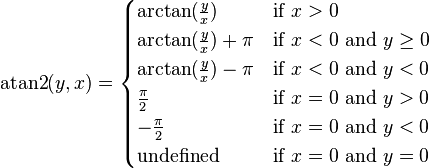Hallo,
I have a few questions about some user interface messages in Flow. As you probably know, we are very very interested in getting all the messages documented well as early as possible. The current documentation for some messages is not completely helpful now. Here they are:
1. What exactly is the definition of "Moderated user"? I found some documentation about moderation on the wiki, bot not so much about "moderated user".
2. The current documentation says "Used as text for the link which points to the "Edit header" page." The problem is that it's not quite clear what is this page about. Is it the header of an edit? Is it a page (a whole page?) where the header of something is edited?
3. Is there any difference between "Title" and "Header"? If they are not different, then the terminology must be made consistent. If they are different, then the difference must be documented.
3.1 What about "Topic" and "Topic title"?
4. Is there any difference between "Comment" and "Post"? If there's a difference, can you please define both? It may affect the translations quite significantly. If there synonymous, please consider dropping one of them.
5. Some messages that use PLURAL may or may not need an additional clause for 0. For example, it may be needed in the message flow-rev-message-reply-bundle: "$1 {{PLURAL:$1|comment|comments}} were added. I considered sending a patch with something like {{PLURAL:$1|$1 comment|$1 comments|0=No comments}}, but then thought that it may be irrelevant in this context. Please go over all the instances of PLURAL use and add it if necessary.
5.1 What would make this message even easier to understand is, again, better qqq documentation. Currently it says "When multiple replies have been posted, they're bundled. This is the message to describe that multiple replies were posted." This is good, but it should also say where does this string appear: Near a post? In an email? What must happen so it would appear? The same applies to all messages.
6. Some messages include parameters that will be replaced by usernames. It's not clear whether this must be a username or whether it can be an anonymous user, and if it is an anonymous user, how will this be handled. This must be made clear in the qqq documentation of every such message.
7. The message flow-rev-message-edit-title currently reads "[[User:$1|$1]] {{GENDER:$1|edited}} the topic title to [$2 $3].". I suspect that instead of "edited" it should say "changed", but please check this.
8. The message flow-post-history is very hard to understand. Why the quotation marks? What's the post? What's the comment?
9. Some messages with imperative verbs include the current user name for GENDER support, and this is very good, but some don't. For example, flow-topic-comments, flow-talk-link, flow-moderation-intro-* and others.
10. In general, can you please prepare a glossary of terms for this extension? All of the above and then some can go there - moderated, header, title, board, comment, post, delete, suppress, censor etc. If "moderate" can have different meanings with different words, for example "moderated user", "moderated post" etc., then all the meanings must appear. You can simply write it as a page in mediawiki.org and make it translatable. The Wikidata project did such a thing and it was supremely helpful, even though it changed frequently throughout the process. This helps not just the translators - it should help the developers understand and plan their own work better.
